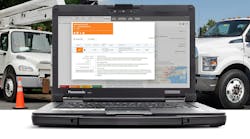NEW YORK. A replacement for the current API CJ-4 heavy-duty engine oilspecification is not scheduled to be on the market until Jan. 1, 2016, but the first new heavy-duty engine oil classification in 10 years will in all likelihood be two separate oils, one of which may not be compatible with current truck engines.
At issue is a request by engine manufacturers that lubrication companies provide them with a new engine oil category that can help them meet upcoming fuel efficiency requirementswithout compromising engine durability or life, according to Dan Arcy, chairman of the American Petroleum Institute (API) committee charged with developing the new oil classification.
CJ-4 and older oil classifications were developed to help meet federal requirements reducing particulate matter (PM) and NOx emissions. With those emissions now at extremely low levels, the Environmental Protection Agency(EPA) has turned its attention to reducing greenhouse gases by improving truck fuel efficiency and cutting CO2 emissions. New standards for heavy truck and diesel engine fuel efficiency will take effect in 2014 and tighten in 2017.
Changes in oil viscosity will play a significant role in meeting those requirements, according to Arcy, who is also global OEM technical manager for Shell Oil. Current 10W-30 low viscosity oils have already proved effective in improving heavy-duty on-highway truck fuel efficiency, he said at a press briefing. A new classification called PC-11 by the committee could result in an oil still within the technical boundaries of the 10W-30 rating, but with even lower viscosities than current oils and therefore better fuel efficiency benefits.
A second PC-11 oil with heavier viscosities for off-highway applications was also requested by the engine makers. All previous API category changes have provided oils that are backwards compatible with older engines, meaning the new oil could be used as a direct replacement for older categories. However, the new lower viscosity or more fuel efficient version of this proposed split classification may not be suitable for older engines, meaning those existing diesels would need to use the heavier PC-11, Arcy pointed out.
“The jury’s still out on backwards compatibility for the lower viscosity oil,” Arcy said. “Backwards compatibility could even be engine dependent or service dependent. That’s what [the committee] is working on right now.”
Issues still to be addressed include how to identify and distribute oils with the same 10W-30 rating but with two different, and perhaps incompatible, viscosities, he said.
Along with the viscosity changes for fuel efficiency improvement, PC-11 will include significant changes to the test procedures used to ensure the oil meets engine makers requirements for durability and wear. Current tests have become obsolete as diesels have changed over the last decade to meet emissions standards, according to Arcy. Newer test procedures will more closely approximate what oils actually see in real world service today, he said.
It's still too early to answer questions about operational issues like drain intervals and cost for PC-11 oils, Arcy said.


